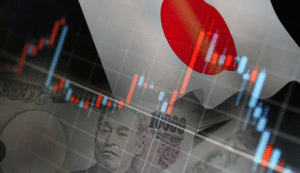$AAPL $BRK.A $BRK.B
#WarrenBuffett #Apple #BerkshireHathaway #StockMarket #CashReserves #InvestmentStrategy #BRK #AAPLStock #BuffetMoves #LongTermInvesting #Investment #FinancialNews
Warren Buffett, often referred to as the Oracle of Omaha, has once again made waves in the financial world with a notable reduction in his company’s stake in Apple Inc. ($AAPL). This move, part of a broader strategy by Berkshire Hathaway ($BRK.A, $BRK.B), has garnered significant attention from investors, not only due to the sale of Apple shares but also because it contributed to a staggering $97 billion cash buildup at Berkshire Hathaway. The scale of this cash influx stands out, as Berkshire sits on an impressive pile of liquidity unmatched by many other companies. For many, the question remains: Why is Buffett, historically a long-term investor who rarely spurs massive sell-offs, opting for a more conservative approach with such cash accumulation?
Analysts are now speculating that a combination of factors could be behind this cash surge. One central hypothesis revolves around Buffett’s aversion to overpaying for investments. Currently, the market is hovering near historic highs, with valuations for many top companies, including Apple, considered elevated. Buffett has been known to avoid bidding aggressively when he perceives the price isn’t right, even for a company as successful as Apple, where Berkshire still holds a sizable portion of shares. With uncertainties in monetary policy, inflation concerns, and fluctuating global economic factors, it’s likely that Buffett wants to ensure that Berkshire remains in a highly liquid state, prepared to capitalize on any future opportunities, such as market corrections or economic downturns. In this way, the decision showcases his disciplined, value-based investing strategy.
Moreover, making such a significant sale of Apple stock—and potentially other stock holdings—also reflects Buffett’s unique perspective on diversification. Despite Apple having been one of Berkshire’s most profitable and largest holdings for years, maintaining flexibility is key in the world of value investing. By not having an outsized dependency on a single stock or sector, he can adapt to changing market conditions more easily. It’s noteworthy that while the Apple stake was reduced, Berkshire remains heavily invested in future long-term trends across different sectors, indicating confidence in some areas, even as its leadership exercises caution. Thus, Berkshire may now be diversifying its investments or simply waiting patiently for the market landscape to tilt in more favorably priced opportunities.
The massive $97 billion cash reserve also speaks volumes about Buffett’s philosophy of financial prudence. With cash on hand, Berkshire has positioned itself to be agile during periods of economic volatility. During past recessions and downturns, Buffett has famously used Berkshire’s cash to make high-profile purchases, acquiring companies and stock at discounted prices. With global economic challenges persisting, such as geopolitical tensions, supply chain disruptions, and rising interest rates, keeping this war chest intact could enable Berkshire to act swiftly and decisively when the right opportunities arise. Ultimately, while some may perceive Berkshire’s reduced Apple stake as a retreat, in reality, it may be more of a calculated shift, preparing the company for renewed growth and strategic acquisitions amidst potential future market jolts.





Comments are closed.